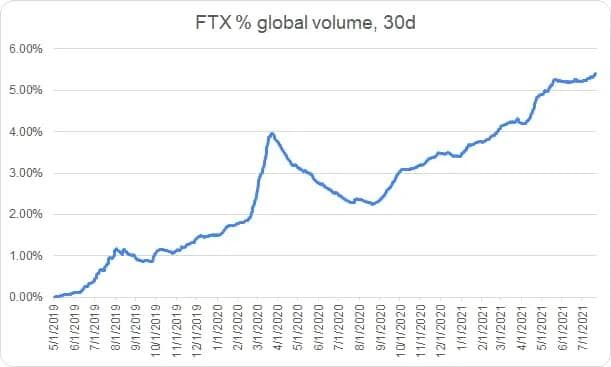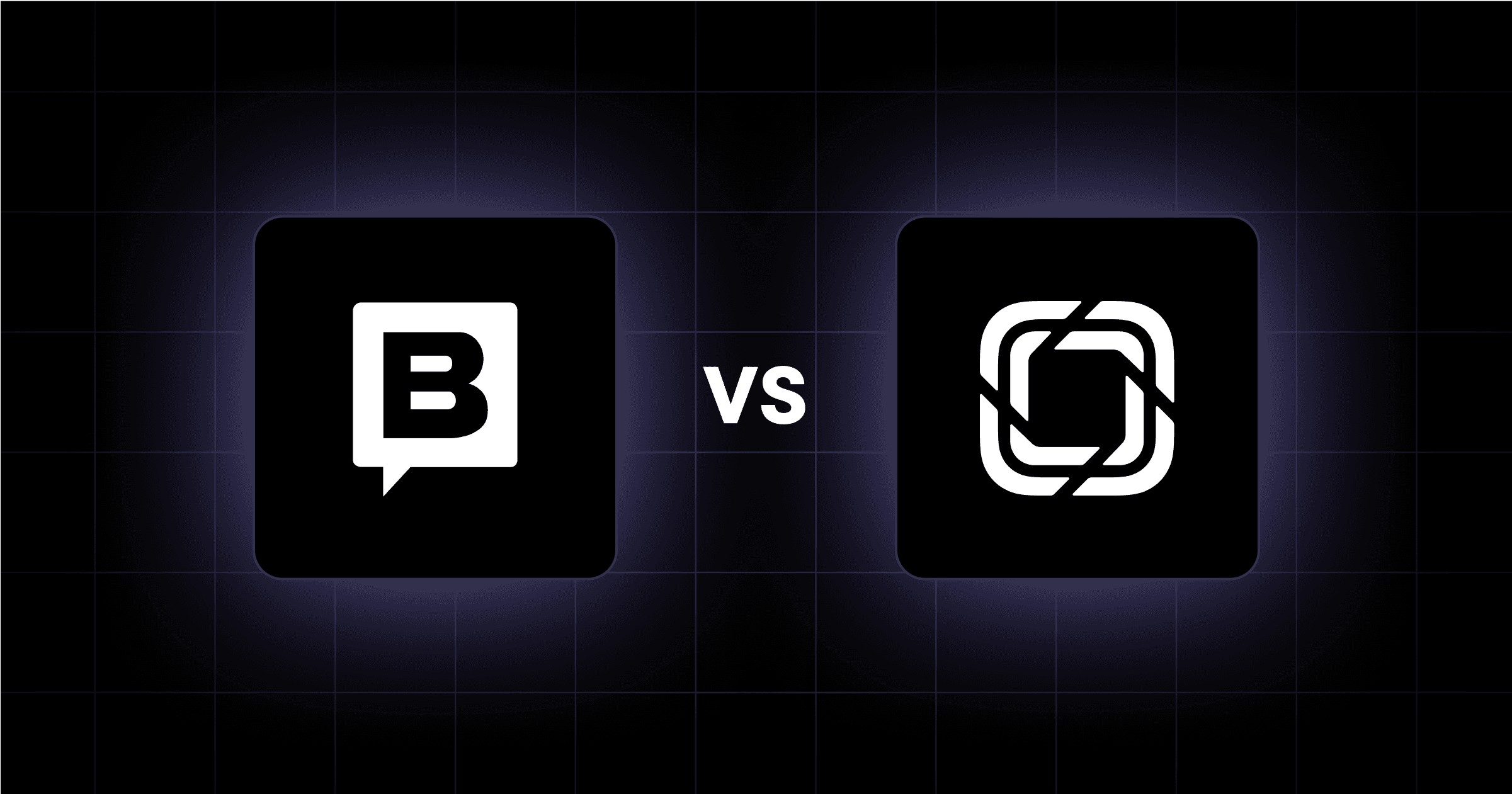Tuesday, October 19, 2021
4 Crypto Influencer Marketing Examples in 2021

With the ever-flowing money pouring into the space, we are seeing more and more public figures following the trend, and with that, the explosion of influencer marketing.
We recently covered the unique differences of traditional vs. blockchain marketing, and in this article, aim to expand on this topic showcasing some key examples of influencer marketing and how you can use it to grow your crypto startup.
What is Crypto Influencer Marketing?
Influencer marketing, by definition, is:
When looking at the marketing industry as a whole, we are currently seeing a gold rush of people using influencers and incorporating them into their growth marketing strategies.
eMarketer reports that in 2021 alone, influencer marketing spend will rise 33.6% to $3.69 billion, the strongest spending growth in the industry since 2019.
How is Crypto Influencer Marketing Different?
Unlike traditional influencer marketing, crypto is a bleeding edge, early, and innovative sector of business and technology.
The newness and complexity of crypto shift how we must think of influencer marketing; there is not a liquid supply of influencers in our niche.
It's an environment where curating the specific influencer has much higher importance and raises questions like:
- Do we use a crypto-native influencer?
- Do we want to work with a public figure, and is this person in crypto?
- If not, can they be convinced?
- Will this first entry in the scene be perceived as inauthentic?
We highlight inauthentic because, in recent news, influencer marketing in the crypto scene has seen some bad PR, to say the least, with FaZe eSports "Pump and Dump" scandal.

Why is Crypto Influencer Marketing Important?
Crypto innovators and thought leaders like Sam Bankman-Fried of FTX and Serum have massive visions for the future, including a billion people using crypto and trillions of dollars being traded on centralized and decentralized exchanges.
To usher in the next 10s of millions of people, brands need to enter the mainstream. Influencers are ideal candidates to help build trust with the public, and help take something like crypto from misunderstood to second nature in a few years.
Importance of Brand Safety
As marketers, brand safety is always at the top of our priority list.
There will always be bad players in any industry, and in the crypto space particularly, brands must be extremely cautious with their influencer marketing plans.
Let's get into some great examples of how brands are using influencers right, and cover how you can implement an effective influencer strategy to grow your startup.
4 Crypto Influencer Marketing Examples & Case Studies
The influencer you work with can't just be anyone with the following base. They need to be someone that shares a similar audience demographic to your target market and can be seen as an ambassador of your brand mission, vision, and values.
In short, FTX chose influencers who:
- Are credible and highly respected
- Target a specific audience
- Align with their core values
FTX Teams up with Five Influencers to Raise Awareness
If you're not familiar with FTX, the company is a centralized cryptocurrency exchange, "built by traders, for traders." FTX offers innovative products including industry-first derivatives, options, volatility products, and leveraged tokens.
FTX was founded by Sam Bankman-Fried, who for three and a half years, became one of the most successful crypto traders, developing a net worth of over $9 billion.
FTX has Seen Tremendous Growth in 2021
This past year alone, FTX's total volume has exceeded $1.875 Trillion, a 400%+ Year-over-Year (YoY) increase.

FTX is differentiating itself from the crowd with its diverse and strategic group of influencers, and its growth correlation comes as no surprise.
1. Tom Brady & Gisele Bündchen
Tom Brady, 2021 NFL Superbowl champion and one of the best quarterbacks to ever play the game of football, has been a huge advocate in the blockchain space.
Tom Brady Influencer Statistics
- 7-time NFL Superbowl Champion
- 10M Instagram followers
- $250MM Net Worth
Gisele, the highest-paid model in the world, not only has a net worth that almost doubles Tom Brady's, but she is one of the most charitable celebrities in the world. Gisele has spearheaded several humanitarian initiatives, including The Zero Hunger Program, Africa's HIV/AIDS, Clear Water Project, and The Lux Light Foundation.
Gisele Bündchen Influencer Statistics
- $400MM Net Worth
- Highest paid model in the world, 14-years running
- 17M Instagram followers
Choosing Influencers with Credibility and Positive Social Image
Tom Brady and Gisele are an iconic couple in the world of celebrities.
Tom Brady and Gisele have done and continue to do great things to push the world in a better direction, and their credibility cannot be questioned.
On top of that, they are both innovators in their respective fields and have come together with FTX to continue to push both blockchain and the core value of FTX: effective altruism.
Tom Brady's Dominance in Sports Targets Crypto Affinity Audiences
In addition to Tom and Gisele's public credibility and massive organic social reach, the audiences they've created align with FTX's ideal customers.
If you spend time on Crypto Twitter (CT) you'll learn quickly that this space is full of fun personalities. One of the most vocal and entertaining niche groups in crypto is the "DeFi Degens," or people who participate in decentralized finance (DeFi), and view themselves as risk-takers, and even sometimes as far as degenerate gamblers.
While this "DeFi Degen," archetype doesn't apply to everyone, the similarities between them and sports betters are close. With their partnership with Tom Brady, FTX is hoping sports fans' interests in sports betting will translate to signing up for an FTX account and start investing in crypto.
Choosing Influencers who Align with Company Values
What else can be said? Gisele and Tom are leaders in pushing the needle in philanthropy and directly align with FTX and Sam's belief in effective altruism.
Gisele and her multiple philanthropy projects, Tom's TB12 Foundation which assists at-risk athletes with sports-related rehabilitation, and their massive amount donated checks every single box making this partnership a massive success
Effective Altruism is at the Core of Sam and FTX's Company Values
Before Sam's work in crypto, he was a trader at Jane Street Capital, a globally renowned trading firm in New York, and he also held a position as the Director of Development at the Center for Effective Altruism.
What is Effective Altruism?
Effective altruism is a philosophy that aims to do the greatest good for others. While some philanthropists will casually donate their money to different nonprofits, effective altruists aim to create the largest impact on the world with their donations.
With effective altruism at the heart of Sam's mission, and FTX striving to become the premier cryptocurrency exchange in the world, the influencer partners they've chosen to work with are a perfect example of aligning brand and influencer goals.
2. Blockfolio Chooses Barstool, Dave Portnoy, and Trevor Lawrence
Blockfolio is regarded as the market's leading mobile news and crypto portfolio tracking app and led to their 2020 acquisition by FTX for $150 million.
To increase their reach to US customers, Blockfolio, with support from FTX, teamed up with Dave Portnoy of Barstool sports, one of the most iconic internet media personalities today, as a sponsor on his day trading show.
Doubling down on their foothold in the National Football League, Blockfolio announced a monumental endorsement deal with Trevor Lawrence, the 1st overall NFL draft pick and college football superstar out of Clemson, as part of his signing bonus.
Although Portnoy has had some questionable PR instances, he is beloved by the college and young adult crowd. He's pushed boundaries and shifted the culture of how sports media is thought of and maintains a positive image in the public light.
A sponsorship on any of Barstool's outlets is highly coveted in the ad industry and doesn't come at a cheap price by any means. The Barstool brand and Dave Portnoy are synonymous, and the Barstool brand is doing better than ever.
Influencer Marketing Reach
- Dave Portnoy has over 3.8M followers on Instagram and 2.6M on Twitter.
- Barstool has almost 12M Instagram followers, over 3M Twitter followers, and is worth over $450 as a media brand
- Trevor Lawrence has 1M Instagram followers and 200K Twitter followers
The Credibility of the Sports World Superstars
Trevor Lawrence has one of the most family-friendly and wholesome public images in the superstar athlete realm. He's done everything an NFL team could want in terms of off-the-field antics and is one of the most highly touted QB prospects in recent years.
For a young athlete and as a person, Lawrence's credibility is all you can ask for.
Crypto Influencer Marketing Targets a Younger Audience
These partnerships focus on the young demographic but specifically target a niche of people more prone to taking risks.
Because Portnoy is an internet native influencer who is popular among college students, new day traders, and male sports enthusiasts, this influencer partnership perfectly engages an important 18-29-year-old age demographic for crypto investors.
Additionally, this partnership aligns with Barstool's new sportsbook. Blockfolio was one of the first crypto startups to lean heavily into marketing to young sports bettors and fans.
Alignment of Core Values
Barstool has built arguably the most successful sports media business in recent history. It has a massive online following and has run some impressive charity campaigns such as the Barstool Fund which raised over $41M to help small businesses overcome the hardships of the COVID-19 pandemic.
Dan Lian who ran the church retreat Lawrence and other Clemson players frequented stated, “Faith for him (Lawrence) brings peace and context into his life. It bleeds into every part of his life.”
Being early in his career, Lawrence hasn't had the time to do as much as he would like in the philanthropic sense, but FTX is betting on his talent as a player and as a person.
3. Shark Tank's Kevin O'Leary Becomes Spokesperson for FTX
Kevin O'Leary is a serial entrepreneur who is known for his television hosting spots, most infamously on ABC's Shark Tank. O'Leary, or Mr. Wonderful, as his fans know him, recently became an official spokesperson for FTX, including a lucrative equity deal.
Kevin O'Leary's Rapport in the Entrepreneur Community
The blockchain space is filled with entrepreneurs, innovators, and builders; it's the essence of being in the crypto industry. Countless decentralized applications need building, and O'Leary speaks directly to this crowd of people.
"Mr. Wonderful" has made many investments in startups and often speaks about the trials and tribulations he's faced to get to where he is at today. This type of message cannot be emulated, and his success story is one not glamorized but filled with overcoming failures that his crowd can resonate with.
His name gains attention from the general population, but what's interesting is how he draws from institutional players and entrepreneurs in other industries.
Kevin O'Leary's Influence Extends from Social to Earned Media
While other influencers like Dave Portnoy and Gisele might have more influence on social media platforms, companies like FTX need to diversify their exposure to all channels.
Working with O'Leary expands FTX's reach beyond Instagram and Twitter, and creates exposure on National Television and traditional online media outlets.
Whereas Trevor Lawrence and Barstool are a hit with younger audiences, Mr. Wonderful is a household name to the millions of families who tune into Shark Tank every week.
The O'Leary Foundation and Alignment of Company Values
O'Leary co-founded his philanthropic organization with a mission dedicated to supporting, "programs in human services, education, and health care initiatives that offer significant, potential support for individual development and community enhancement."
O'Leary came from a middle-class family, and as a kid, his parents instilled in him an appetite for volunteerism. Philanthropy has been a big part of O'Leary's life since he was born, and his nonprofit work is a perfect fit for Sam's long-term goals in altruism.
4. Steph Curry and The Warriors Partner With FTX
Steph Curry, former NBA MVP and the most prolific three-point shooter of all time made his first endorsement deal with a crypto company in FTX.
As Sam stated in a recent interview,
"His tireless commitment to charity alongside a ferocious work ethic to become the greatest in any arena he steps foot in, whether it is basketball, investing or business, perfectly align with FTX’s core values.”
We see this charitable and "best-in-class" quality among all the influencers with which FTX has chosen to work. They are the most respected and beloved people in their niche.
Steph, similar to Tom Brady, tackles another mainstream sports audience in the NBA, expands the credibility of FTX, and embodies the underdog success story that is reminiscent of Sam Bankman-Fried's attempt to become the most influential person in crypto as a 29-year-old trading superstar.
Steph Curry Outside of Sports is Family-Oriented and Charitable
Steph Curry is a family man. If you take a quick scroll through Curry's Instagram, it is apparent his family is a tremendous part of his life.
For much of his career, Curry has also remained clear of drama and simultaneously has made an incredible impact alongside his wife in helping feed starving families in California.
Boasting an incredible 36.3M followers on Instagram, the largest following base on this list, Steph has dabbled in plenty of other areas outside of basketball.
An NFT collector, golfer, and investor, he's built a unique brand that surpasses anyone on this list reach-wise and has seen success on and off the court in a multitude of industries.
Reach Outside of Basketball
The NBA is a global phenomenon.
The reach of NBA players is unique in that the NBA has expanded its reach across the globe and is one of the most viewed Olympic Sports every year.
While FTX is trying to make inroads in the North American market to compete with well-established exchanges like Coinbase, FTX isn't just a U.S. company. FTX is based in Singapore and wants to be the premier exchange around the world.
On top of all the audience overlap Curry reaches with the others on this list, he brings a characteristic from a sports athlete that is difficult to emulate outside of basketball.
The #1 Crypto Influencer Marketing Pitfall to Avoid
We touched on it earlier in this article with the FaZe eSports team scandal and wanted to provide a little more context to the subject of avoiding inauthenticity.
Don't Engage the Wrong Influencer
When you're a big brand, you can stomach a few punches if your spokesperson generates some unwanted publicity, but for startups in a space as volatile and cutthroat as crypto, try to avoid working with high-risk influencers.
Here are a few reasons why you should protect your brand against bad influencers.
1. Influencers Can Damage your Brand Image
Brand credibility is everything; even more so in crypto.
Hiring an influencer means trusting them to represent your brand and be aligned to your brand's manifesto (mission, vision, values).
The last thing you want is to have to rebuild from taking a bad PR hit and is an important variable to consider when vetting influencers.
2. Customers Can See Through Fake Influencers
The current generation of consumers is the smartest consumers to date. With technology practically being born in their hands, it is an everyday part of their lives.
Kids nowadays are getting iPhones before they turn 10 and coding in elementary school. With this level of absorption in social media, there is an innate ability to spot inauthenticity.
Faking authenticity is one of the highest negative EV (expected value) business decisions you can make and is in the fast lane for breaking relationships with your customers.
When in doubt, don't hire someone who wouldn't plausibly use your blockchain product.
3. Avoid Influencers Who Don't Resonate with Your Audience
Providing the above two points are met, it's important to consider how your influencer will resonate with your target audience.
Even if your influencer partner is credible and an ethical choice, there's the chance that the fit doesn't make sense and your audience might not care.
Let's use Stephen Curry as a hypothetical example.
An influencer deal with a health supplement makes perfect sense; Curry is an athlete and prioritizes his health. An influencer deal with a fast food restaurant would make less sense for the same health and athletic reasons.
It sounds simple, but it's an important aspect to consider when planning out your influencer marketing campaign strategy.
4. The Wrong Influencers are a PR Risk and Impact Brand Safety
Before working with an influencer, assess the long-term engagement goals, and forecast for any potential event that could negatively impact your brand.
Some things are unforeseeable, and that's a small risk your company takes when working with influencers. Your goal as a business is to minimize this.
Key Takeaway
With the continued exponential growth of social media platforms like Twitter, Instagram, and TikTok influencer marketing is only going to become more important to the marketing mix for crypto startups.
When looking to start an influencer marketing campaign, take an approach like FTX who put great care and attention into working with influencers who not only held influence over audiences likely to invest in crypto but also shared their long-term company environment and sustainability goals.



